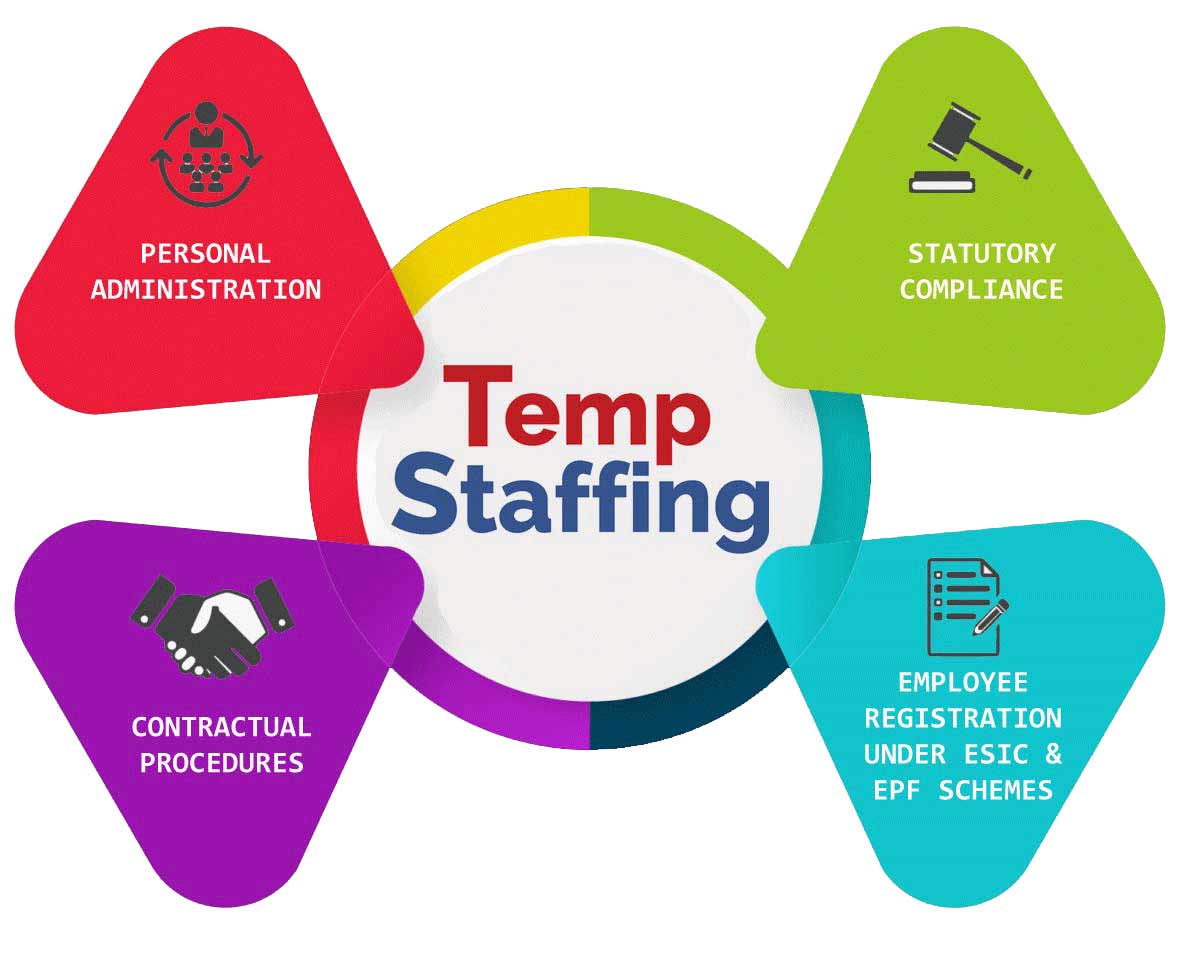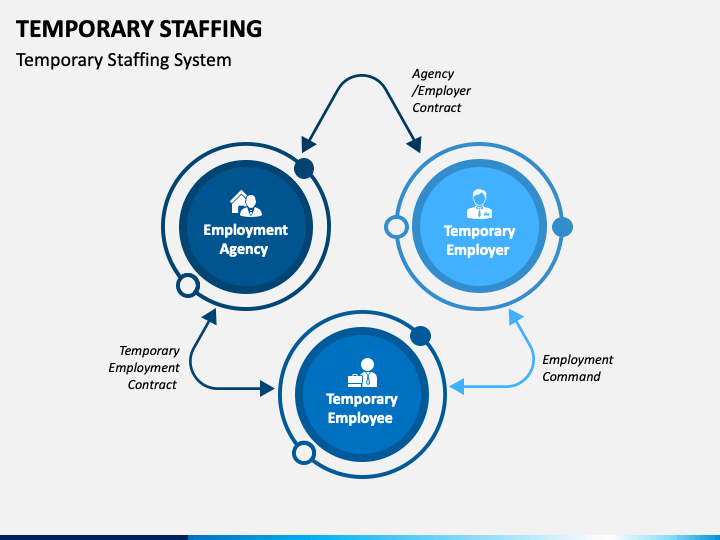



Temporary work, also known as temporary employment or gigs, refers to a type of employment arrangement where individuals are hired for a specific duration based on the needs of the employing organization. These workers may be referred to as "contractual," "seasonal," "interim," "casual staff," "outsourced," or "freelancers." Temporary work provides flexibility to both employers and employees, allowing organizations to meet short-term demands while offering individuals the opportunity to gain experience and income during specific time frames.
Sometimes. It depends on how long you’ve been temping with that company and the service agreement the agency has with them. It takes a lot of time and effort to find the right person for a full-time job, and it’s very costly for a company if they hire the wrong person. That’s why many leave the job to recruitment pros, who are hired to source the best candidates for full-time jobs, contract work and temporary assignments.

Temporary staffing plays a crucial role in maximizing efficiency within organizations. By leveraging temporary staff, businesses can optimize their operations in several ways. Firstly, temporary staffing allows companies to quickly adapt to fluctuating workloads and seasonal demands. Whether it's peak periods, special projects, or sudden surges in workload, temporary staff can be readily deployed to ensure timely delivery and meet customer demands.